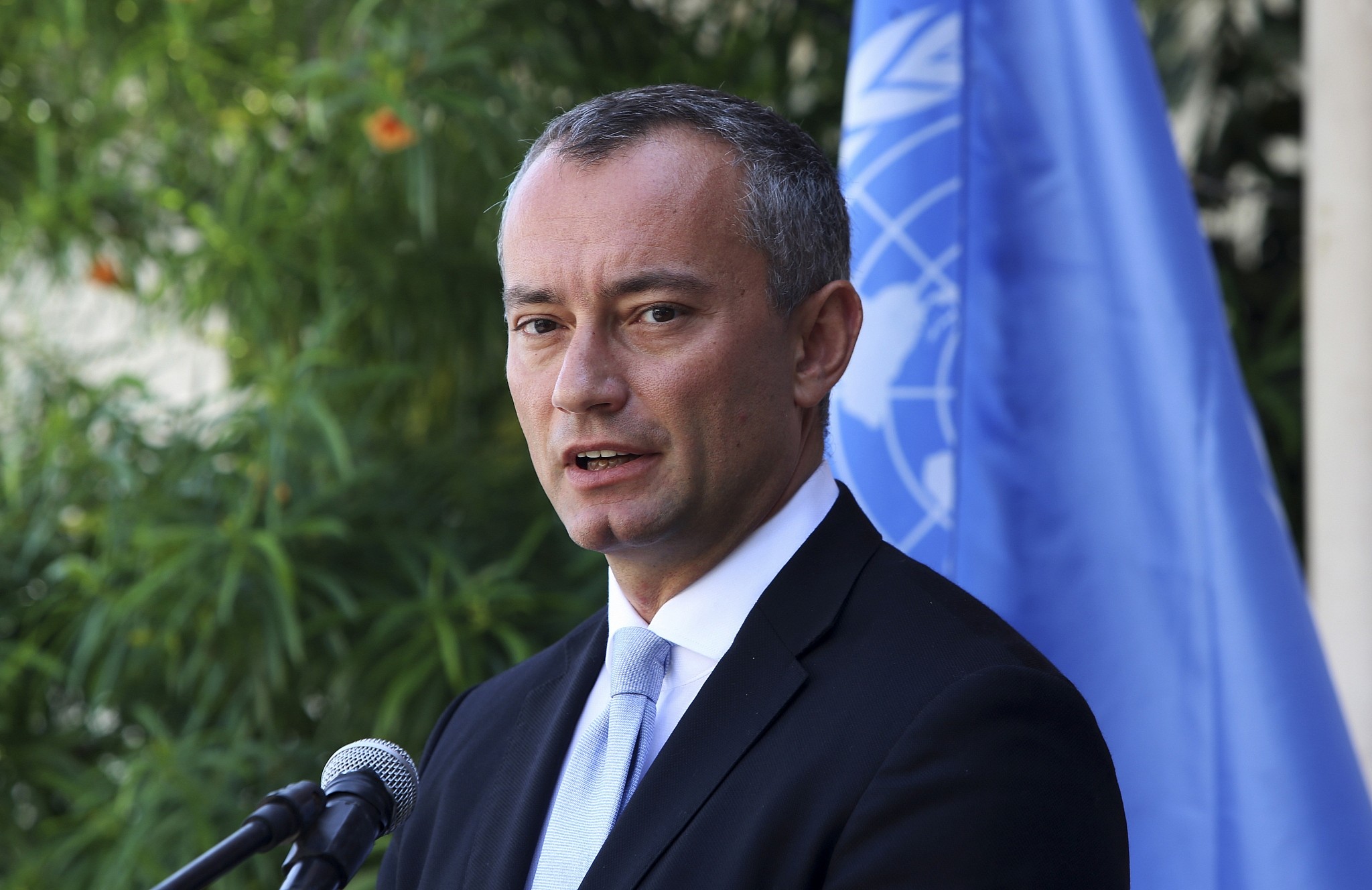Nickolay Mladenov, United Nations Special Coordinator for the Middle East Peace Process, expressed today concern regarding Israeli plans to annex the occupied Jordan Valley, stressing that such a step would have devastating effects on the region.
“The annexation of some or all of Area C in the West Bank, if implemented, would deal a devastating blow to the potential of reviving Israeli-Palestinian negotiations, advancing regional peace, and the essence of the two-state solution,” said Mladenov in a tweet.
Israeli Prime Minister Benjamin Netanyahu and his rival in Blue-White Party, Benny Gantz, have promised annexation of the Jordan Valley, northern Dead Sea and the illegal settlements located in Area C of the occupied West Bank if they win the upcoming Israeli elections.
Their call was also strongly condemned by the Palestinian presidency which said in a statement that Netanyahu and Gantz’s statements threaten peace and stability in the region.
“Such statements are a blow to the foundations of the peace process that would take the region to a dangerous new phase of conflict and instability,” said presidential spokesman, Nabil Abu Rudeineh, in a statement yesterday.
“The presidency warns all the Israeli parties that make these statements of their implications on the overall Palestinian-Israeli relations, including the signed agreements and mutual obligations between the two parties,” he added, calling on the international community to stand firm against these Israeli positions “that threaten security, stability and world peace.”
The Palestinian government also condemned the Netanyahu and Gantz statements on the annexation of parts of the occupied West Bank, warning that they would take the region into “a new cycle of conflict that will threaten world peace and security.”
Government spokesman Ibrahim Melhem said in a statement yesterday that the government has called on world countries, particularly those participating in the 50th session of the World Economic Forum, held in Davos, Switzerland, “to take preventive measures against the expected Israeli move by recognizing the independent State of Palestine on the June 4, 1967 borders with East Jerusalem as its capital, and to follow the example of Sweden, whose recognition of the State of Palestine was a model for turning political positions and convictions into actions.”



